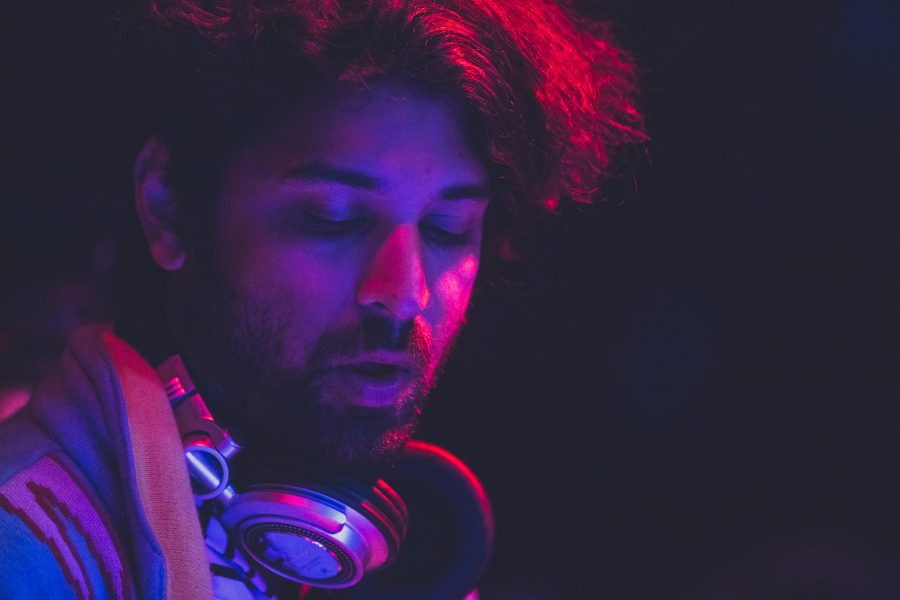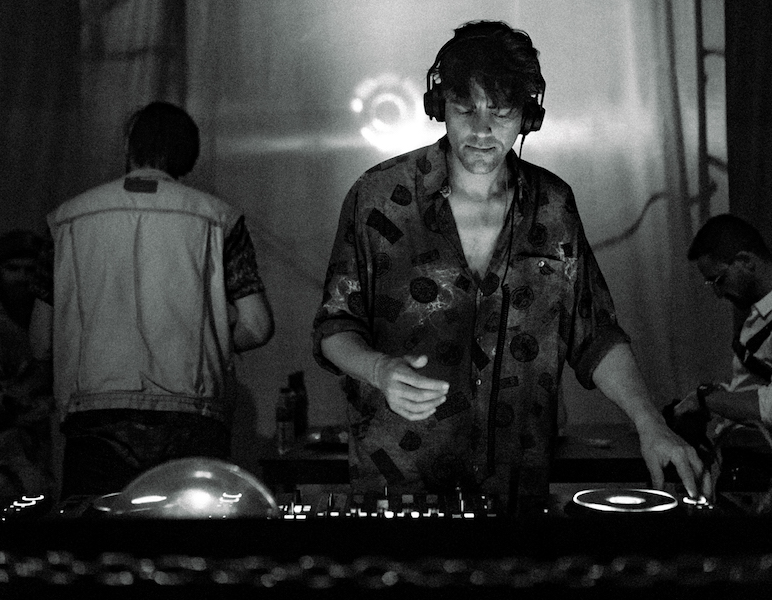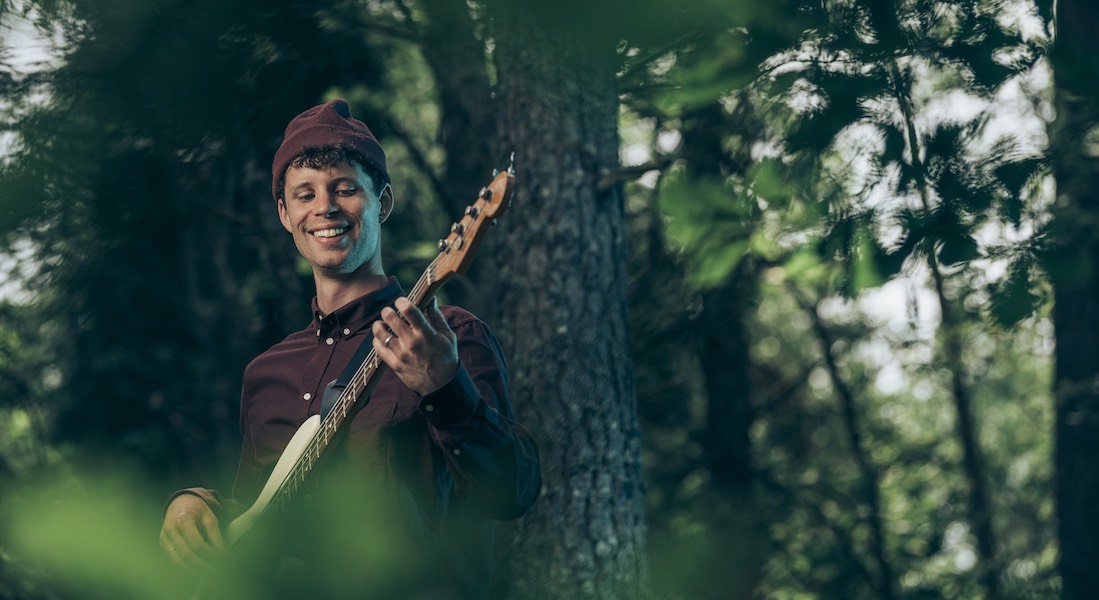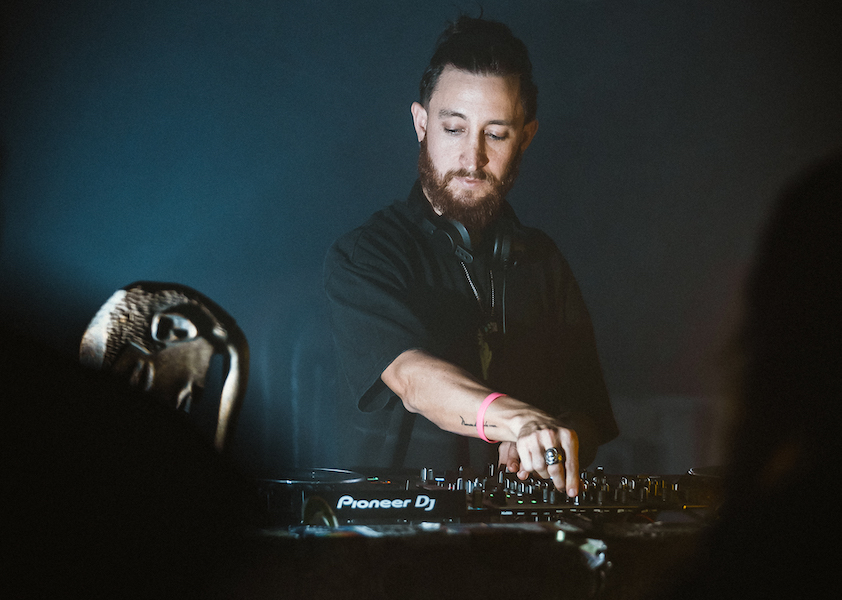Manjumasi boss atish joins us on the second instalment of our recently launched Dip Studio Series. The New York-based producer, DJ and label owner has just dropped a vibrant new cut on Kiosk I.D., the budding imprint of renowned Berlin club Kater Blau. ‘Coco Buggy’ features on the 43 Katzen tanzen auf’m Tisch compilation curated by Mira with funds going to support the clubs operations, which face major challenges during this time of global pandemic.
atish has delivered a deep dive into the production of the track, dissecting the groove and touching on topics like Call and Response, synth automation and Re-sampling. What’s more, he has kindly taken the time for a rapid fire Q&A. It’s all below!
WWD: Do you have a particular process or any rituals to get into the creative mind space?
The #1 thing that’s made the biggest impact has been turning off my phone, disabling computer notifications, and closing all browser windows. To many producers this may seem obvious, but this was a pretty life-changing decision for me, and somewhat embarrassing to admit that I was whatsapping and emailing while trying to make music at the same time. Every buzz, distraction, and communication with the outside world has a cost. I read somewhere that once you’re in a state of flow, a single interruption can cost 45 minutes to get back into the flow state. I actually read this in the context of computer programming, but this definitely applies to music or any other creative endeavor.
Beyond that, I’ve recently tried starting some of my production sessions with a simple 5 minute meditation. Even when the phone is off, the brain still has all this garbage filled with the stresses of the day, which is terrible to bring into the studio. These mini-meditations turn the volume down on the outside noise and grease the creative wheels.
WWD: In the breakdown of your new track ‘Coco Buggy’, you mentioned the mantra of quality over quantity in the process of developing creative skills. For those unfamiliar, can you shed a little more light on it?
Last year, my wife suggested I read the book Art & Fear, and this fundamentally changed my approach to creation. There’s a section in the book that illustrates that it’s better to think about quantity rather than quality when approaching creative work. The act of finishing a piece of work, even if you don’t think it’s great, teaches you about your own artistic process and the many steps that are involved in going from start to finish. This means we must strive to finish as much work as we possibly can, rather than obsessing over a single perfect piece (which we’ll probably never achieve). When we do this, we will get much closer to mastery of our craft at a much faster rate.
WWD: You were a latecomer to music production initially, having made your breakout primarily as a DJ. For anyone hoping to learn production in a rapid time period. What advice would you give?
Youtube videos and production courses are great resources, but the #1 thing that’s taught me the most has been sitting in the room with another producer and soaking in everything they are doing. This is tough to do amidst a pandemic of course, but if you have a skilled producer in your inner circle, ask if you can be a fly on the wall. Bonus points if that producer is open to you asking questions along the way.
WWD: What new studio skills have you learned recently?
I was chatting with Silat Beksi, my all-time favorite Romanian/minimal producer, about how his bass+percussion sounds so beautifully layered and dynamic in his recent Manjumasi release. He said one simple thing that blew my mind and has changed my approach: turn off compression, especially in the bass. This is an idea that’s so far removed from my existing world view, and it’s such a fundamentally simple idea, but as I’ve been trying this new approach, I feel like I’ve unlocked a new power.
WWD: What is the piece of advice you’ve received when it comes to making music?
We discussed this above, but it really can’t be overstated: focus on quantity over quality. Finish as much work as you possibly can, then sort out where it fits later on. In the long run, you will have more quality work than if you were obsessing over perfection the whole time.
But let’s throw a new idea in the mix: when creating new ideas, train yourself to create without judgement. In that first session, let an idea flow without deciding if it’s good or bad. The judging part of the brain blocks the creative part of the brain and sometimes shuts down unique interesting ideas. How many times have you created a loop that you thought was a home run, and you listen to it the next day to find out it’s a miss? You may find the opposite is true as well, if you let yourself flow and finish ideas to completion. Obviously, we have to make our judgement calls at some point in the process, but save those for the 2nd session and beyond.
WWD: Can you tell us about your artist mentorship program?
I run a mentorship/coaching program through my Patreon page. I have monthly 1:1 sessions with up-and-coming artists where we discuss many facets of building a career: music production feedback, DJ feedback, career strategy, social media, throwing events, workflow, running a record label, and many other things. Some of the sessions are even just emotional support therapy sessions!
WWD: What do you enjoy most about the process of guiding emerging artists?
I love helping people. At the end of most sessions I sheepishly ask if they found this time useful, and when they say yes, it really just brightens my day. I’m just so glad that I’ve been able to find something personally rewarding amongst the temporary crumble of the nightlife scene. And it feels great to discover something new that I’m good at (based on what my students tell me, I wouldn’t say this otherwise!)
One of the most important sessions I had with a student was talking through whether he should get a day job or focus all his energy full-time on music. It’s really a tough call, but I’ve been through that process myself, and I was able to speak to the emotional and financial pressures associated with going full-time music. Without enough income from music to cover the bills, going all-in on music can put you at risk of compromising your integrity and put you in a short-term mindset rather than playing the long game.
When I was making my way up the ranks, I wish I had a reliable coach in my corner, so this is my opportunity to be the “musical father figure” I never had. That student ended up taking a day job. I would have supported whatever decision he chose, but I was definitely relieved that he made the strategic long-term play rather than hunting for quick wins.
WWD: You started an artist career and creativity focused video series on YouTube recently. What inspired its launch?
The YouTube series was largely inspired by my Patreon 1:1 sessions. There are so many great philosophical and technical nuggets discussed in these sessions. and many times, I have the same conversations amongst different students. I limit the number of students I take in the program, so I figured the most efficient way to share my point of view with the world is through YouTube.
I’m also trying to fill a gap in the YouTube world in relation to our scene. Rather than focusing on specific techniques like “how to make a fat kick,” of which there are thousands of videos to choose, I’m trying to focus on 2 angles: extremely high level topics like “What is the point of DJing” and hour-long deep dives into Ableton projects analyzing the elements of a finished track. I’m working on making the Ableton deep dives a monthly series with different guest producers. I just recently did one with Mark Slee.
WWD: What topic can we expect to see you cover in the coming months?
I’m currently working on a 5-part series on managing mental health as an artist. I’ve been pleased to see this topic getting more attention within our scene, and happy to throw my 2 cents into the mix. Outside that, working on a couple pieces about self-releasing vs working with a label, the difference between artists and entertainers, and many more!
Follow atish on YouTube here.
For more info on atish‘s Artist Mentorship Program visit: https://www.patreon.com/atishmusic
Track: atish – Coco Buggy Label: Kiosk I.D.
Buy on Bandcamp here.






